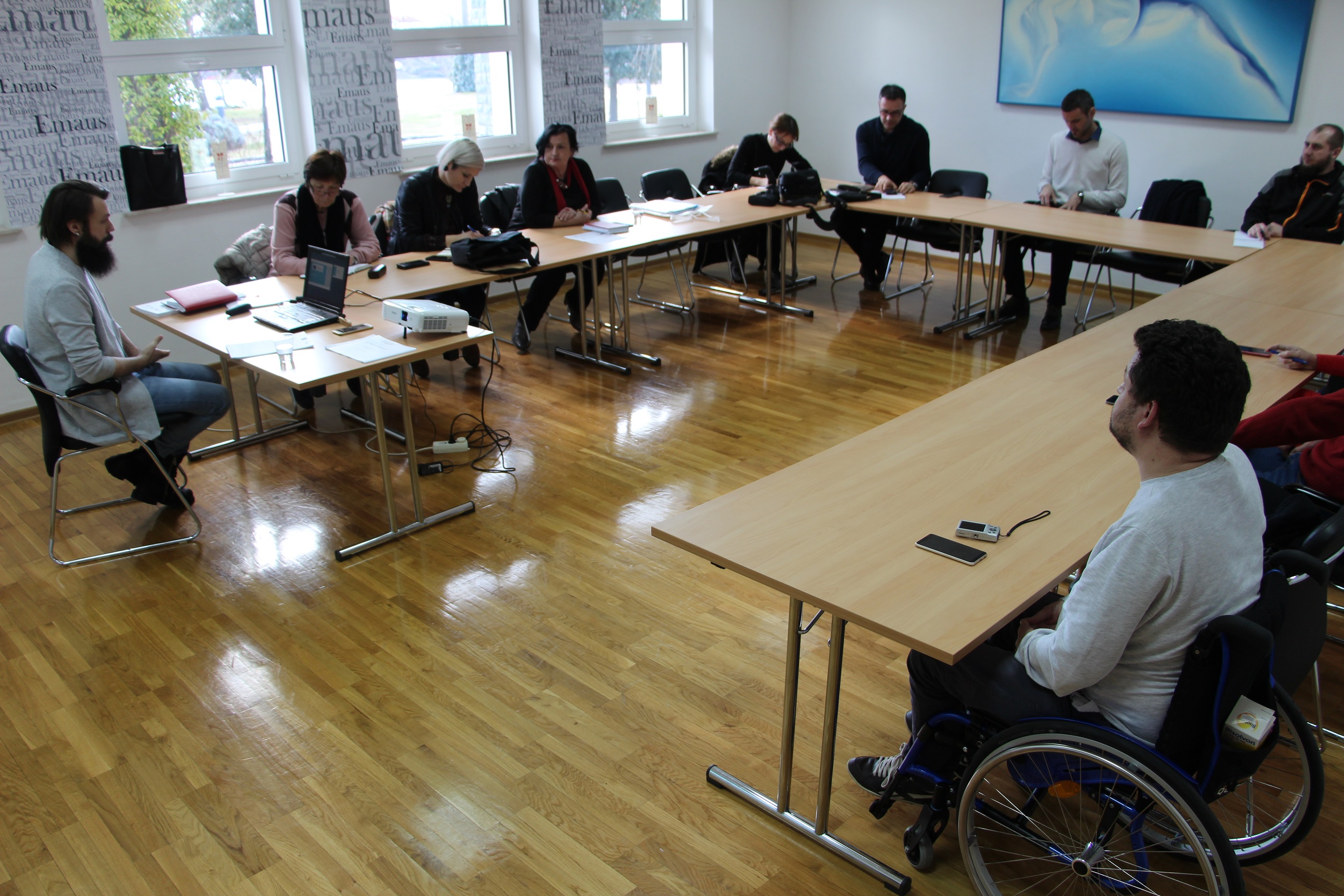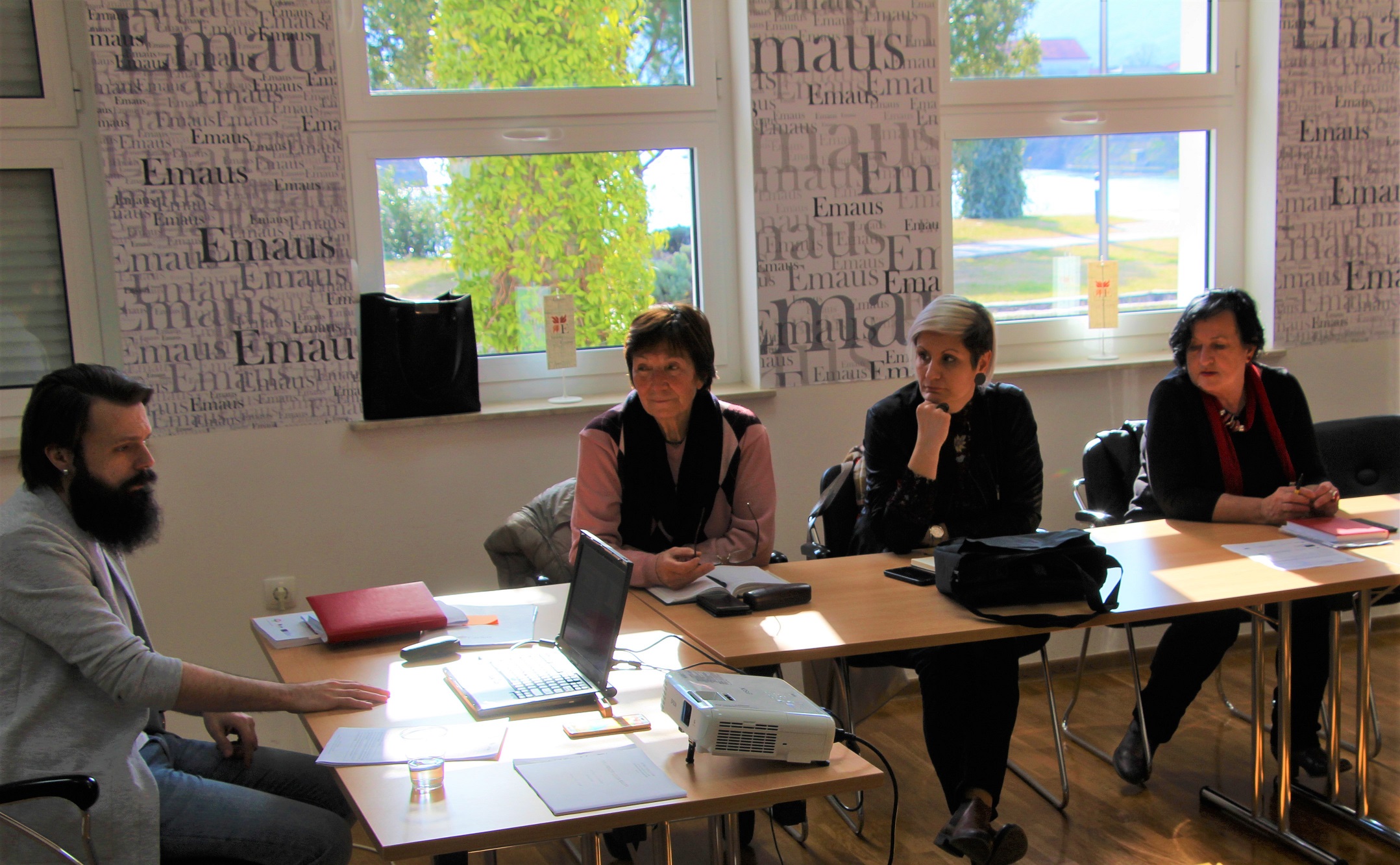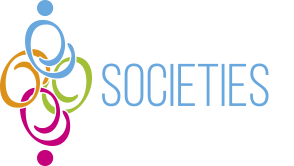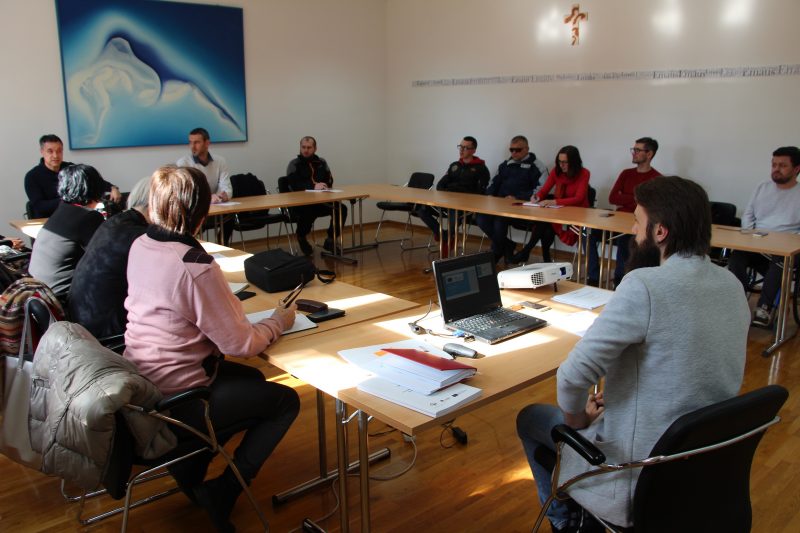As part of the SOCIETIES project, Caritas Bosnia and Herzegovina initiated the process of forming social inclusion working groups. The aim of these working groups is to enhance the participation and role of civil society organizations in the decision-making process and to exchange the knowledge and experience of these associations and organizations with public institutions on the processes of social inclusion of persons with disabilities and the corresponding social policies. Over the last period two working groups were established, one in Mostar and one in Tuzla.
In this regard, a working group in Mostar held a meeting on 15th of February on “Social Services for People with Disabilities”, in cooperation with the Diocesan Caritas Mostar-Duvno and Trebinje-Mrkan and the Parents’ Association of children with special needs “Vedri Osmijeh”. The working group gathered representatives of 15 non-governmental organizations as well as representatives of public institutions and ministries.

During the meeting participants had the opportunity to discuss about social services provided to people with disabilities, with an attention on services aimed at empowering the community, preventing social exclusion, supporting life in the natural community, and protecting people with disabilities from violating their human rights. Participants in the open discussion discussed various types of services currently available in Bosnia and Herzegovina. Special emphasis has been put on the analysis of the disadvantages of public service providers, such as various social welfare institutions. At the end of the meeting, the participants of this working group made a list of key recommendations and the necessary measures to be taken to bring Bosnia and Herzegovina closer to the standards of the European Union. The list of recommendations and measures includes the change of legal framework and individual regulations, and overall standardization in the provision of services for both public and non-governmental providers that need to receive funds from the government.
In the forthcoming period, 4 more meetings of the working groups for social inclusion of persons with disabilities at the level of Bosnia and Herzegovina are planned. As the results of these activities gathered recommendations for creating new and redefining existing social policies and legal solutions will be presented at a national forum scheduled for May 2019.

Project SOCIETIES aims to assist civil society organizations in upgrading technical skills, or to contribute to the social inclusion of people with disabilities through the implementation of EU standards in South East Europe. The project is being implemented in five countries of Southeast Europe: Albania, Bosnia and Herzegovina, Montenegro, Kosovo* and Serbia with the support of experts from Italy and Bulgaria. The implementation of the project involves 16 partner organizations, including Caritas of Bosnia and Herzegovina. The projected duration is 48 months, until the end of 2019. The project is funded by the EU funds under the program of support for regional and thematic networks of civil society organizations.

